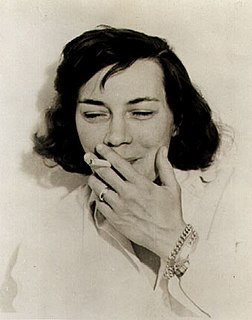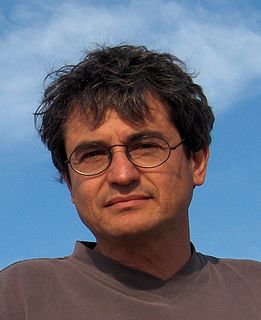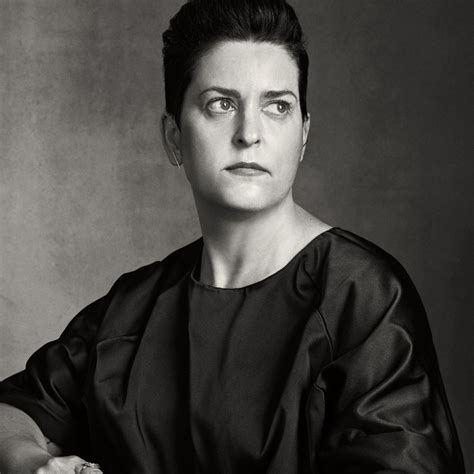A Quote by Stephen Hawking
This required abandoning the idea that there is a universal quantity called time that all clocks measure. Instead, everyone would have his own personal time. The clocks of two people would agree if they were at rest with respect to each other but not if they were moving. This has been confirmed by a number of experiments, including one in which an extremely accurate timepiece was flown around the world and then compared with one that had stayed in place. If you wanted to live longer, you could keep flying to the east so the speed of the plane added to the earth
Quote Topics
Abandoning
Accurate
Added
Agree
Around
Around The World
Been
Clocks
Compared
Confirmed
Could
Each
Earth
East
Everyone
Experiments
Extremely
Flown
Flying
Had
His
Idea
Including
Instead
Keep
Live
Longer
Measure
Moving
Number
Other
Own
People
Personal
Personal Time
Place
Plane
Quantity
Required
Respect
Rest
Speed
Stayed
Then
Time
Two
Two People
Universal
Wanted
Were
Which
World
Would
Related Quotes
The time would not pass. Somebody was playing with the clocks, and not only the electronic clocks but the wind-up kind too. The second hand on my watch would twitch once, and a year would pass, and then it would twitch again. There was nothing I could do about it. As an Earthling I had to believe whatever clocks said -and calendars.
Life would go out in a 'fraction of a second' (that was the phrase), but all night he had been realizing that time depends on clocks and the passage of light. There were no clocks and the light wouldn't change. Nobody really knew how long a second of pain could be. It might last a whole purgatory--or for ever.
When the first mechanical clocks were invented, marking off time in crisp, regular intervals, it must have surprised people to discover that time flowed outside their own mental and physiological processes. Body time flows at its own variable rate, oblivious to the most precise hydrogen master clocks in the laboratory. In fact, the human body contains its own exquisite time-pieces, all with their separate rhythms. There are the alpha waves in the brain; another clock is the heart. And all the while tick the mysterious, ruthless clocks that regulate aging.
The Greeks had two words for time. Chronos is the time we usually keep an eye on. Kairos was our participation of time. Time that moves us so that we lose our sense of time; timeless time; moments at which the clocks seems to stop; feeding, renewing, more motherly time. It's the time with which we feel one instead of outside of it, the self, the tao, the love that connects us to others.
In this world, there are two times. There is mechanical time and there is body time." "They do not keep clocks in their houses. Instead, they listen to their heartbeats. They feel the rhythms of their moods and desires." "Then there are those who think their bodies don't exist. They live by mechanical time. They rise at seven o'clock in the morning. They eat their lunch at noon and their supper at six. They arrive at their appointments on time, precisely by the clock.
They were not friends. They didn't know each other. It struck Tom like a horrible truth, true for all time, true for the people he had known in the past and for those he would know in the future: each had stood and would stand before him, and he would know time and time again that he would never know them, and the worst was that there would always be the illusion, for a time, that he did know them, and that he and they were completely in harmony and alike. For an instant the wordless shock of his realization seemed more than he could bear.
We never really see time. We see only clocks. If you say this object moves, what you really mean is that this object is here when the hand of your clock is here, and so on. We say we measure time with clocks, but we see only the hands of the clocks, not time itself. And the hands of a clock are a physical variable like any other. So in a sense we cheat because what we really observe are physical variables as a function of other physical variables, but we represent that as if everything is evolving in time.
There is a balance, a kind of standoff between the time continuum and the human entity, our frail bundle of soma and psyche. We eventually succumb to time, it's true, but time depends on us. We carry it in our muscles and genes, pass it on to the next set of time-factoring creatures, our brown-eyed daughters and jug-eared sons, or how would the world keep going. Never mind the time theorists, the cesium devices that measure the life and death of the smallest silvery trillionth of a second.... We were the only crucial clocks, our minds and bodies, way stations for the distribution of time.
Life evolved under conditions of light and darkness, light and then darkness. And so plants and animals developed their own internal clocks so that they would be ready for these changes in light. These are chemical clocks, and they're found in every known being that has two or more cells and in some that only have one cell.
The thing about New York is, more than any other place I've ever been, you run into people on the street that you would never imagine you'd see, old friends, people just like there for a day or two. I find that all the time when I'm walking around Manhattan, running into people that I had no idea were even there.
And then, one Thursday, nearly two thousand years after one man had been nailed to a tree for saying how great it would be to be nice to people for a change, a girl sitting on her own in a small café in Rickmansworth suddenly realized what it was that had been going wrong all this time, and she finally knew how the world could be made a good and happy place. This time it was right, it would work, and no one would have to get nailed to anything.
One of the ways the telegraph changed us as humans was it gave us a new sense of what time it is. It gave us an understanding of simultaneity. It gave us the ability to synchronize clocks from one place to another. It made it possible for the world to have standard time and time zones and then Daylight Savings Time and then after that jetlag. All of that is due to the telegraph because, before that, the time was whatever it was wherever you were.
For me the noise of Time is not sad: I love bells, clocks, watches — and I recall that at first photographic implements were related to techniques of cabinetmaking and the machinery of precision: cameras, in short, were clocks for seeing, and perhaps in me someone very old still hears in the photographic mechanism the living sound of the wood.
Those two pilots that sped 150 miles past their Minneapolis destination have been suspended. They got suspended because they were looking at their laptops instead of flying the plane. Think about this -- everybody else on the plane has to turn off their laptops except for the people flying the plane.



































